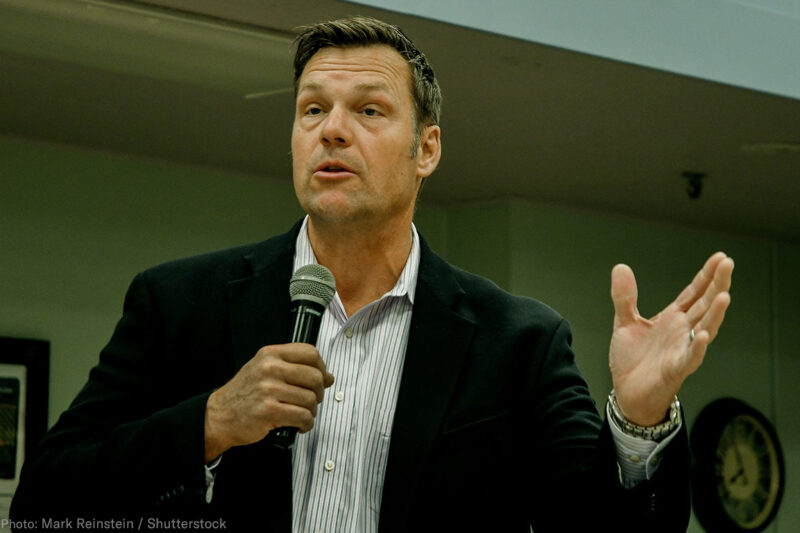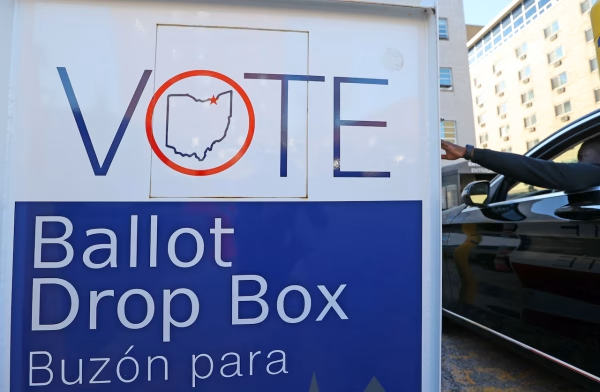
The ACLU’s Voting Rights Project today amended our complaint in ACLU v. Donald Trump, our lawsuit against the White House’s voter suppression commission, led by Vice President Mike Pence and Kansas Secretary of State Kris Kobach.
In addition to the ACLU’s existing transparency and fair balance claims, the amended complaint charges that the commission has acted arbitrarily and outside the scope of its legal authority. In making its unprecedented decision to aggregate the personal data of every registered voter in the United States, the commission failed to properly consider, for example, the cybersecurity and privacy implications of compiling this sensitive data. In addition, investigating records of individual voters goes well beyond the commission's mandate to study and make recommendations concerning registration and voting processes.
Kobach’s record on this matter is extremely troubling. His prized voter monitoring system, Crosscheck, which stores millions of voter files and is ostensibly meant to stop people from voting in more than one state, has serious defects. It not only produces erroneous findings, but it is also open to massive security risks.
Gizmodo found that “the records passing through the Crosscheck system have been stored on a server in Arkansas operating on a network rife with security flaws” and that “multiple sets of login credentials” have been compromised. ProPublica similarly discovered that security vulnerabilities, like hosting files on an insecure server and sharing login credentials over email, “could imperil the safety of millions of peoples’ records.” And security analysts warned in a recent court brief that Kobach’s plan to collect millions of files containing voters’ personal information “would constitute a treasure trove for malicious actors.”
The Kansas Secretary of State’s problems don’t end there: His commission is so troubled that it is even facing a lawsuit from one of its own members.
The suit filed last month by Maine Secretary of State Matt Dunlap, a Democrat, claims that the panel’s “superficial bipartisanship has been a façade.” The complaint, reports Politico, also alleges that “Secretary Dunlap and the other Democratic commissioners have been excluded from the Commission’s work” and “deprived access to documents prepared by and viewed by other commissioners.” Such partisanship and secrecy put the commission in violation of the Federal Advisory Committee Act, which requires that federal commissions be transparent to the public and fairly balanced.
Kobach could face further legal trouble due to his role as a paid writer for Breitbart News. According to Citizens for Responsibility and Ethics in Washington, Kobach may have broken conflict of interest law by writing a (wildly inaccurate) paid article on voter fraud for Breitbart, which he then used for his commission’s work.
The commission, nonetheless, is still pushing the voter fraud myth. One member, J. Christian Adams, recently sent a letter demanding that the Department of Justice pursue more voter fraud cases. This is not surprising, for years Adams has sent letters to local officials demanding that they purge their voter rolls in order to combat the problem of rampant voter fraud, with Mother Jones finding that he was “targeting” areas with large minority and Democratic populations.
Back in Kansas, Kobach has faced criticism from disability rights advocates, who have highlighted the harmful impact of his restrictive voting policies. In one local election, 23 people with disabilities had their mail-in ballots tossed over questions about their signature. Rocky Nichols of the Disability Rights Center of Kansas told Newsweek that the new signature requirements are “a problem for people with disabilities” who “don’t have the same ability to mark a ballot as you did when you were younger.”
This is just one of many problems that have emerged in Kansas elections under Kobach’s watch. But Kobach isn’t content with wreaking electoral havoc in one state. Now, through his White House commission, he has the chance to bring this disaster nationwide. Americans must remain vigilant — and demand that their elected officials focus on the real issues which impact our voting rights, such as ensuring secure and reliable voting systems and encouraging voter participation.


